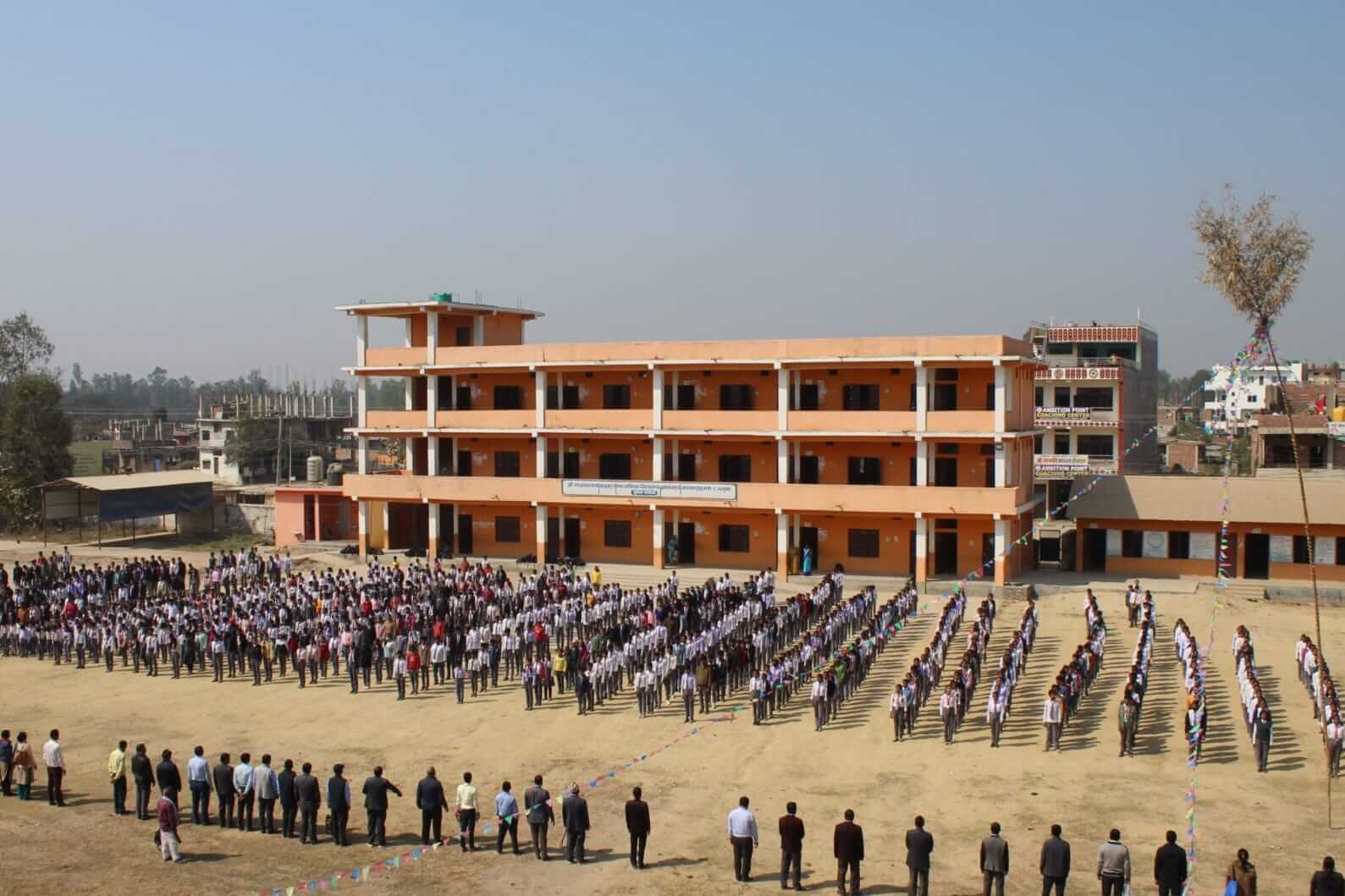
Yagyavalkya Sanskrit Secondary School Reviving Sanskrit Education in Janakpurdham
Located in the heart of Janakpurdham-8, Dhanusha, the Yagyavalkya Sanskrit Secondary School, also known as Gyankoop, stands as a testament to the enduring legacy of Sanskrit education in Madhesh province. For over 113 years, this institution has been a cornerstone of Vedic learning, surviving through periods of turmoil, including the armed conflict that nearly halted its operations.
Overcoming Adversity:
The armed conflict posed a significant challenge to the school, with many fearing the loss of this historic institution. However, the resilience of the school's management committee and staff, led by Principal Sanjay Kumar Jha, ensured its revival. Starting with a modest enrollment of 25-26 students in 2066 BS, the school has since seen a remarkable turnaround, now boasting an enrollment of 2,500 students. This success is attributed to the dedication of the school community and the support of parents and related bodies.
Embracing Modernity:
In addition to its rich Sanskrit curriculum, the school introduced technical subjects in 2073 BS, acknowledging the importance of connecting traditional Vedic education with modern technical skills. This innovative approach has played a crucial role in attracting a broader student base, further solidifying the school's status as a leading center of learning.
A Beacon of Sanskrit Knowledge:
The school, affectionately known as Gyankoop, continues to serve as a wellspring of Sanskrit knowledge, adapting to the times by integrating technology into its curriculum. Assistant Principal Somnath Bhattarai emphasizes the school's commitment to evolving while staying true to its roots, reflecting the growing interest in Sanskrit education amidst challenges.
A Rich History:
The origins of Yagyavalkya Sanskrit Secondary School trace back to ancient times, with Janakpur being a hub of Vedic philosophy and tradition. The school's establishment in 1996 BS by the government, and its evolution from a ritual school in 1885 BS, showcases a long-standing commitment to preserving and promoting Sanskrit education.
Future Aspirations:
With an ambitious goal to double its student population, the school faces challenges in infrastructure, technical equipment, and staffing. Despite these hurdles, the commitment to providing quality education in technical, Sanskrit, and general studies remains unwavering, with plans to enhance facilities and resources.
Navigating Tradition and Modernity:
The school's policy on residential ritual education, which provides for 65 Brahmin students, reflects traditional practices. While general and technical education is open to all, the conversation around caste and educational opportunities continues, with the school and Guthi Sansthan playing pivotal roles in this complex dialogue.
A Legacy of Enlightenment
Yagyavalkya Sanskrit Secondary School's journey from a historic institution to a modern educational hub exemplifies the resilience and adaptability of traditional education in the face of change. As it continues to blend ancient wisdom with contemporary skills, the school not only honors its past but also paves the way for a future where Sanskrit education remains a vibrant and essential part of Nepal's cultural and academic landscape.
Historical Date:
- 1885 BS (Baisakh Akshaya Tritiya) - Initiation of teaching from the premises of Lakshmana temple as a ritual school.
- 1910 BS - Expansion of teaching activities to Jhulaghar of Ram Mandir.
- 1960 BS - Unification of various educational activities into a single school located in an Ashram north-west of Sri Ram Mandir and Janaki Mandir.
- 1966 BS (Baisakh) - Formal legalization under the name 'Rajkaiya Sanskrit Pradhan Pathshala' by the Malpot Department's Sanskrit Settlement Civil Division, with approval for Grammar, Astrology, and Literature subjects.
- 1973 BS - Establishment of Vedavedanga Pathshala.
- 1990 BS (Baisakh Sukla Akshaya Tritiya) - Foundation of Mouniyya Sanskrit University by Sadhu Mouni Baba from Chitrakut, India.
- 2005 BS - Donation of land and resources to Guthi Sansthan by Mouni Baba for the school's operational expenses, leading to the integration of Gurukul, Rajkaiya Sanskrit Pradhan Pathshala, and Vedvedanga Pathshala into a unified institution.
- 2024 BS - Establishment of Yajnavalkya Sanskrit College.
- 2030 BS - Transfer of the college to Matihani, Mahottari, followed by the re-establishment of Hazari Janak Vidyapeeth in the school premises in 2047 BS after a political system change.
- 2066 BS - Resumption of teaching post-armed conflict with an initial enrollment of 25-26 students.
- 2071 BS - Introduction of technical subjects (computer) to connect Vedic education with technology, leading to a significant increase in student enrollment.
- 2073 BS - Further expansion of the technical curriculum, contributing to the school's growth and modern educational approach.





